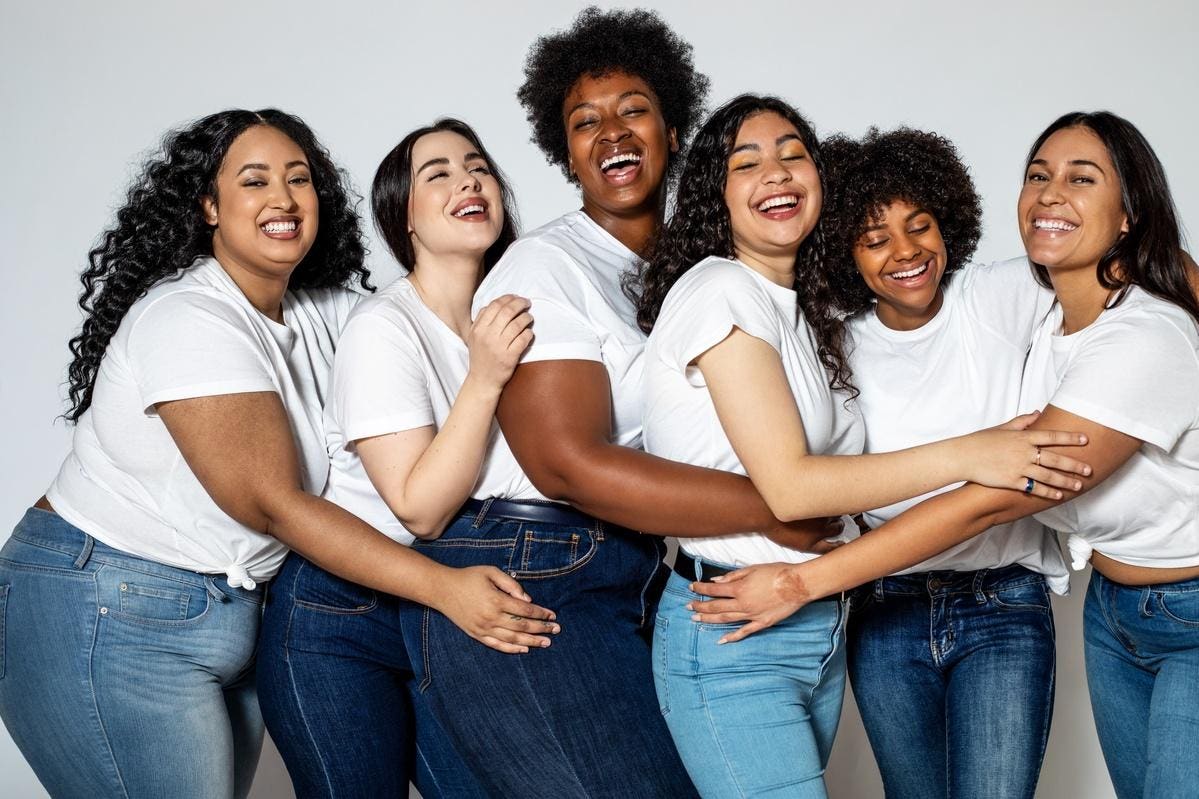FullBeauty Brands, a champion of size-inclusive fashion with over 100 brands, just announced the acquisition of intimates brand Cuup. This comes on the heels of adding Eloquii to its brand portfolio in April. FullBeauty didn’t disclose the amount of either acquisition.
Digital-native Cuup was founded in 2017, and its claim to fame was offering an extended range of size-inclusive bras and panties fitted to real women.
Now with a range of 53 sizes from bandwidths 30 to 58 and cups from A to O, it solved customers’ paradox of choice problem by simplifying her style choices to five basic bra designs and four panties in natural skin colorways. It also offers swimwear with the same simplified approach in selected one-piece and two-piece mix-and-match ranges.
Cuup became an overnight sensation after Kendall Jenner posted a selfie wearing a Cuup balconette bra, helping to build its Instagram loyal following to 235k. And in March, it was picked up by Bloomingdale’s online and featured in its NYC flagship 59th Street store, where the brand’s “Fit Therapists” provide personal fittings and a little body-positivity counseling on the side.
“We are thrilled to welcome Cuup and the Cuup team to FullBeauty Brands’ family, as we continue to grow as the leading destination for great fitting, quality, on-trend and size-inclusive apparel,” said CEO Jim Fogarty in a statement.
“As an innovative, high-growth brand seeking to disrupt the intimates category, Cuup enables us to further tap into the growing intimates addressable market, extends our reach among a new demographic of customers and expands our offerings to our existing customers,” he continued, sharing in a followup interview, FullBeauty’s customer base now totals about 5 million.
Over The Years
Fogarty is fairly new to FullBeauty, having joined as CEO in June 2019 after the company’s owners, Apax Partners and Charlesbank Capital Partners, filed for bankruptcy in February 2019 only to emerge 24 hours later restructured and short $900 million in debt.
But his bona fides in the fashion business are solid, including the plus-size market, having served as CFO for Warnaco and Levi Strauss, followed by CEO of Charming Shoppes, the home of plus-sized Lane Bryant and Catherines brands, and Orchard Brands.
FullBeauty traces its history to 1901 and has always served plus-sized women’s needs, being part of Lane Bryant in its early days and operating its spinoff mail-order business after The Limited bought it.
It became FullBeauty Brands in 2015 with Roaman’s, Jessica London, OneStop Plus, Swimsuits for All and Kingsize for men in its portfolio. Since then, it acquired Ellos and Catherines from Ascena Retail Group for $41 million, which held on to Ann Taylor, Loft and Lane Bryant.
He added, “We’re always looking to find something that’s going to build us, back us up and fill in the pieces.”
Reaching Across Demographics
Eloquii was a welcome addition to FullBeauty, giving it a foothold into the younger plus-sized women’s market and now with Cuup, it expands its demographic reach further.
“All of our brands were founded by women to serve an underserved market,” Fogarty said. “But our traditional portfolio was geared more toward Boomers. We were looking to do better with the GenZ and Millennial customers. I’d say our classic business is the Facebook generation, and now we are moving to the Instagram and TikTok customer.”
To meet these two distinct customer demographics, FullBeauty is taking a digital-mall approach, where one digital-mall platform will give its traditional customers the ability to buy across all their brands. The other digital mall will aim toward the younger consumer, who will have full access to more youthfully vibrant styles, including Eloquii, Swimsuits for All and June + Vie, the company’s private label brand. Cuup will join the mix later this year.
Despite its emphasis on DTC retail, wholesale into brick-and-mortar isn’t off the table, and Fogarty noted back in his Levi Straus days that was the “whole game.”
Currently, FullBeauty has a relationship with Nordstrom through Eloquii and a foothold in Bloomingdale’s with Cuup. In addition, it sells to QVC
QVCA
WMT
TGT
“We are not cloistered to only sell on our digital malls,” he said. “We want to be where our customers shop, and our presence in other places brings us incremental customers we didn’t have before.”
And he also noted that Eloquii had success with popup shops in various markets to introduce new customers to the brand and a return to that approach is a strong possibility.
“The Eloquii team has a passion for that. We’re still working through it, but we think it is a smart idea,” he added.
Big Opportunity
Today, FullBeauty Brands brings in about $1 billion in revenues, making it a big player in a global market estimated by Statista to reach $288 billion this year and grow to $500 billion over the next decade. Moreover, the plus-size market is expected to grow three times faster than the broader women’s apparel market.
FullBeauty is meeting a critical need in the fashion market, since the average American woman now wears between a misses size 16–18, corresponding to a women’s plus size 20W, according to a study published in the International Journal of Fashion DesignTechnology and Education.
But more than a need, FullBeauty satisfies a want – every woman wants and deserves to feel beautiful and well-dressed, no matter her size.
And it found its niche in a market that has challenged many other fashion brands. “Going from straight sizes to plus sizes is really hard to pull off, then add petite, medium and long, and it’s more complicated,” he explained.
Trying to feature all sizes on one clothing rack gets unwieldy, and neither the straight-sized customers or the plus-sized ones are happy having to cycle through so many choices to find something that fits.
Sourcing plus sizes is a challenge too, since factories may not have larger cutting tables to accommodate extended sizing. And then making the right calls on which sizes to stock adds another complication for retailers.
“Thankfully, it’s a difficult problem for traditional fashion retailers to pull off successfully. But we know this customer and have a long history fitting her and serving her. That is our competitive moat.”
Read the full article here





